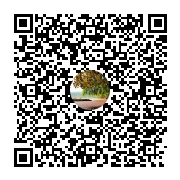Although "genius" is difficult to define, one of the qualities of genius is
the ability to transcend traditional modes of thought and create new ones.
Explain what you think the above statement means and discuss the extent to
which you agree or disagree with this definition of genius. In your
discussion, be sure to include at least one example of someone who, in your
opinion, exemplifies genius or a particular characteristic of genius. (统一
和分歧)
I strongly agree that true genius is the ability to see beyond conventional
modes of thinking and to suggest new and better ones. This definition
property sets genius apart from lesser instances of critical acumen,
inventiveness or creativity. Under this definition, a true genius must
successfully (I) challenge the assumptions underlying a current paradigm,
and (2) supplant the old paradigm with a new, better, and more fruitful one.
This two-pronged standard for true genius is aptly illustrated by examining
the scientific contribution of the century astronomer Copernicus. Prior to
Copernicus, our view of the universe was governed by the Ptolemaic paradigm
of a geocentric universe, according to which our earth was in a fixed
position I at the center of the universe, with other heavenly bodies
revolving around it. Copernicus challenged | this paradigm and its key
assumptions by introducing a distinction between real motion and motion
that \s merely apparent. In doing so, he satisfied the first requirement of
a true genius.
|ad Copernicus managed to show only that the old view and its assumptions
were problematic, we would not consider him a genius today. Copernicus went
on, however, to develop a new paradigm; he claimed that the earth is
rotating while hurtling rapidly through space, and that other heavenly
bodies only appear to revolve around the earth. Moreover, he reasoned that
his view about the earth s real motion could explain the apparent motion of
the sun, stars and other planets around the earth. It turned out he was
right; and his theories helped facilitate Galileo s empirical observations,
Kepler s laws of planetary motion, and Newton s gravitational principle.
To sum up, I find the proposed definition of true genius incisive and
accurate; and the example of Copernicus aptly points up the two required
elements of true genius required by the definition.


